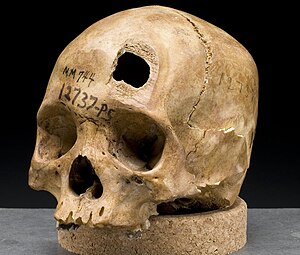In the late 1600s, a colony of Germans quietly settled in at Shotely Bridge and set up what would become the heart of Britain’s sword making industry. The little group of families, led by the Oleys and Moles, had fled from Solingen in 1688, though no one knows why for certain. Some have suggested that they were fleeing religious persecution. Other sources indicate that they may have been escaping the wrath of a local sword maker’s guild whose secrets they had betrayed.

Whatever the reason for their arrival, they found an ideal home in Shotely Bridge. Naturally, they wanted a locale where they could maintain the secrecy of their trade, and they spent some time searching for the perfect home. They initially looked near London before making their way north, exploring along the banks of the Tyne. It wasn’t until 1691 that they came upon the sequestered spot a few miles from Ebchester. The tiny village of Shotely Bridge was remote and the very soft water of the Derwent was perfect for tempering steel.
It is quite apparent that a number of German immigrants had settled in the region earlier in the century as well, and this may be an additional factor in why the sword makers chose to make Shotely Bridge their home. The register in the nearby town of Ebchester shows an entry recording “Eleanor, the daughter of Matthias Wrightson Oley, baptized 1628.” The Wrightsons were an old family in Ebchester and it seems that a number of German Oleys had arrived in the region several decades before the Shotely Bridge settlers.
They were an overall respectable people. The quiet settlers were industrious with strong moral and religious principles. They established themselves easily, mingling freely with natives of the dale. The sword makers of Shotely Bridge quickly gained a reputation for the outstanding quality of their swords, knives and cutlery. They became widely known for their skill in engraving and gilding and the art of tempering steel – an art that was unknown in England before their arrival. There was one weapon though, that none in England could imitate: the hollow sword blade. These blades took special skill that few but the Shotely Bridge sword makers possessed.

When the Napoleonic wars began, demand for good swords rose sharply and Shotely Bridge was the primary provider of the needed weapons. Rather than manufacturing their own iron as was common at the time, the sword makers purchased high quality Swedish iron from Danmora. From this high quality iron they produced the steel used in their craft.
For many years the Germans, and particularly the Oley family, enjoyed great prosperity. They enjoyed high profits, their workmen had high wages, and there was an enormous demand for their products. When William Oley died in 1808, nearly the whole of the village and surrounding territories were owned by the Oley family.
Unfortunately, William Oley’s sons neglected the trade. Competition in the sword making industry increased, and as the Napoleonic war ended, so did the demand.
Today, most of the old German families have faded away, though a few remain. Besides a few Oleys, we can find a number of Molls (though they now spell their name Mole). Sword blades are no longer made in Shotely Bridge, however, and the art has been lost with time and neglect.
Further Reading
